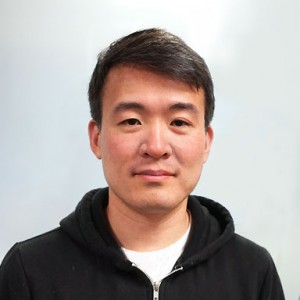 Fitbit CEO James Park
Fitbit CEO James Park
Forget everything you thought you knew about Fitbit. According to founder and CEO James Park, speaking to Forbes International Editor Brian O'Keefe at a recent Forbes event, Fitbit doesn't see itself as a hardware company or a wearable company, but rather as a consumer health and wellness company that happens to sell wearables -- for now.
"While press and analysts focus on Fitbit as a wearables company, the mission of the company is actually a lot broader," he said, responding to a question about whether activity trackers might be a fad. "We’re all about 'How do we use technology to help people become healthier and more active, giving them data and inspiration and guidance?' And we’re pretty agnostic about how that’s done. It could be in the form of devices that are wearables, devices that are not wearable, or software and services. And in that sense, what we’re doing is pretty profound and well beyond a fad."
In fact, according to Park, more than two-thirds of Fitbit's R&D budget is currently spent on software and services, which dovetails nicely with the company's recent acquisition of fitness video company Fitstar. And while Park wouldn't comment specifically on future acquisitions, he did say that one of the big reasons for Fitbit choosing to IPO when it did was to get funds to do more acquisitions.
"We were pretty excited about the fact that we could use public currency to be more aggressive in terms of M&A," he told O'Keefe.
One particular aspect of the software focus is on Fitbit's social features, which Park sees as one of the strongest tools in the company's toolbox for dealing with the retention and engagement problems that come part and parcel with fitness wearables.
"What we’ve seen is the social layer on top of these devices is pretty powerful," he said. "The more friends you have the more active you are and the longer you stay on the platform. That’s something we’re heavily investing in on the software side: to really improve the social experience."
During the Q&A, Park was asked whether Fitbit would move further toward the health side of health and fitness.
"I don’t think it’s a dichotomy between fitness and health," he said. "I think there’s an opportunity to do both and what’s more interesting is a blending of the two. I think part of the success of Fitbit has been the fact that we’ve really tried to consumerize more health and medical-based technologies."
Park touched on a lot of topics during the 20-minute interview. Asked about the ongoing Jawbone lawsuits, he joked that Jawbone should add a feature to its wearable to track how many lawsuits the company files. More seriously, he expressed reserved disappointment about the legal proceedings.
"Innovation is not just reflected in how many patents you have, but success in the marketplace," he said. "I think we’ve done pretty well in both. We [own some 200 patents and patent applications]. I’m personally an author of 93 of our issued patents. We have 85 percent marketshare. I feel pretty confident in the path that we’ve taken. I respect our competitors, however small or large they are, and I hope they choose to compete in the marketplace rather than in the courtroom."
He also spoke about his own experiences with Fitbit. Park said that he and cofounder Eric Friedman had a hard time getting funding early on, something which led to an efficient structuring of the company that they've benefitted from consistently ever since. Park also said that he no longer considers himself a serial entrepreneur, despite it still being mentioned in his bio, which was probably a relief to Fitbit stockholders.
"I really think Fitbit’s my lifetime mission," he said. "It’s been really fun over the last eight and a half years and I still think there’s a lot of innovation left to do in the company."














